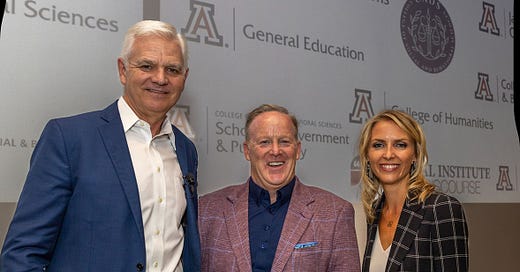What comes after Election Night
We’re days away from the most contentious election of our lives. We all want to know who is going to win, but how are we going to talk about it after it's done?
Sean Spicer wanted to make a bet.
The former White House press secretary and I had wrapped an event focused on discourse last Thursday at the University of Arizona. In a more casual setting, he was willing to wager $2,000 that President Trump would win this election.
I don’t make bets. So there’s no wager. (Though, for the record, while I feared, and was correct, that Trump would defeat Hillary Clinton in 2016, I have a hunch that with hard work and organizing, Vice President Kamala Harris can pull it off this election. Democrats are united, and I can still remember the 2022 “red wave” that never materialized.)
We’ll know more, I hope, in a week. What I know for sure is that what comes after the election is vitally important. A week out from one of the most contentious, longest, and weirdest elections of our lives, we need to think about how we can reach a place where we can engage in discourse with those we disagree with. I’m not talking about condoning hate-filled mega rallies like we saw in Madison Square Garden — rather we need to have real conversations where we listen to people who have different hopes for America.
That’s what we were trying to achieve in Tucson, Arizona. And, for one night, at least, it seemed to work.
***
Sean and I were at the University of Arizona as part of its discourse series. Organizers emphasized that they wanted to show, especially at this most heightened of political moments, that both of us could represent our parties — together — for a more civil dialogue.
Sean and I have many views where we disagree. To say the least. I watched him stand at the podium as President Trump’s press secretary at the beginning of the Trump administration. He watched the images I shaped while working with President Obama. We have very different perspectives on how each administration did. But we have respect for each other as fellow Americans, with public service as a common value.
Sean is a Commander in the U.S. Navy Reserves, he has twins around the age of my son. He is married and lives in Virginia.
Twins under 10 when he was working in the White House. I know how challenging it can be with young children in the White House: I had my son in March 2012, seven weeks later I was in Afghanistan organizing the live address to the nation on the one year anniversary of Osama bin Laden’s death. I stayed at the White House until my son was three.
Sean said when we joined each other to speak at Florida International University’s campus in April: “I do not question Johanna’s patriotism and loyalty to this country.” The same is true for me. Sean loves this country. He serves our country in uniform. While we might have different beliefs, I would never question his patriotism.
It was that base level of respect that brought us to Arizona to join Keith Allred from the National Institute for Civil Discourse who moderated the conversation about the heightened tension this election and what comes next.
***
“After this election is all done, I think we're all going to have to realize that somebody has won, and now what are we going to do?” I posed the question at the event.
What is encouraging, Sean said, is seeing more people want to be a part of the process. “More people are civically engaging, finding groups, making videos, showing up at events,” Sean said.
"Too many times, we want someone else to fix a problem…” Sean said. “Over and over again, there are issues that have come to the forefront because somebody said, 'I'm willing to organize.'"
Both of us agreed we want to see Americans – after the election – continue to engage in our future and focus on finding problems we can solve.
There are plenty of issues, we agreed, that need solving — regardless of who wins this election. Homelessness and poverty in America. Immigration. Social Security solvency. Trade issues and national security. Education. Health. Safety. These issues affect every American and there’s not a simple solution. It’s why these issues continue to be debated.
"The divide is okay. We've got so many problems in this country…” Sean said. “Where we need to do better is the level of respect and civility." He spoke before President Trump’s highly publicized, and highly disrespectful, rally at Madison Square Garden. In the aftermath of that event, we’ve seen some Republican Congressional leaders distance themselves from it.
I agree with Sean: Divisions can be healthy. I’ve lived in two states that have been largely governed by one party rule and both of them have passed some quizzical policies. In Kansas, largely driven by Republicans, they banned the teaching of evolution and instituted a tax policy that crippled state funding. In California, largely driven by Democrats, the Legislature banned contracting before having to rework it, and decriminalized theft in certain circumstances which has led to blowback with a new proposition to overturn some of those initiatives on this year’s ballot. Having different perspectives within government could have brought about better policy the first time.
Sean said he believed there would be opportunity in the aftermath of this election for important discussions on policy. I believe that too.
The challenge comes with our tone. We’ve dehumanized the other side.
I recall a 2010 event: President Obama went to the House Republican Retreat and I was responsible in the last minute of opening it up to the press, thinking we might be able to pressure Republicans to cooperate. President Obama said at the event: “You can't say that I am the devil incarnate and then say, ‘We want to work with you on things that are important.’”
“We’ve got to be able to rise above the partisanship and the caricature of each other if we’re actually going to work together,” Obama said.
Flash forward, opening that up to the press in 2010 didn’t result in Republican cooperation. And since that moment, both parties have gone farther, with rhetoric that makes it harder to have a normal conversation. Or even just disagree.
As I put it: "Fighting for our values does include sitting down with people who disagree with us…until we get to that point, we're not going to win for anybody.”
***
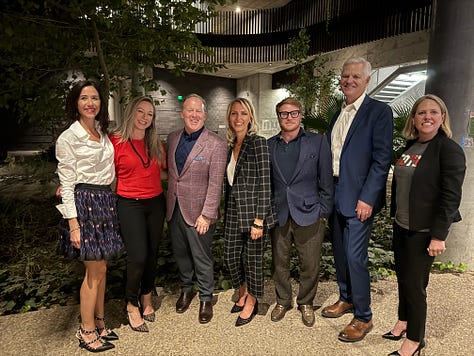
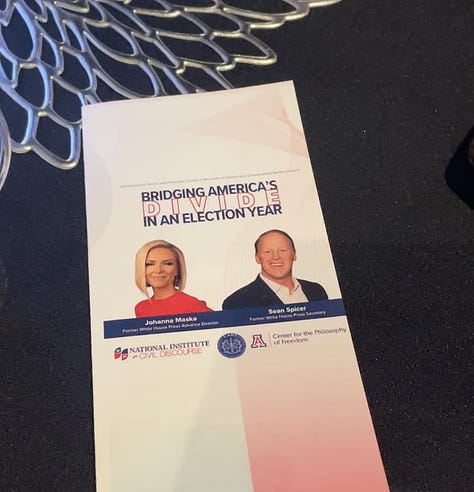
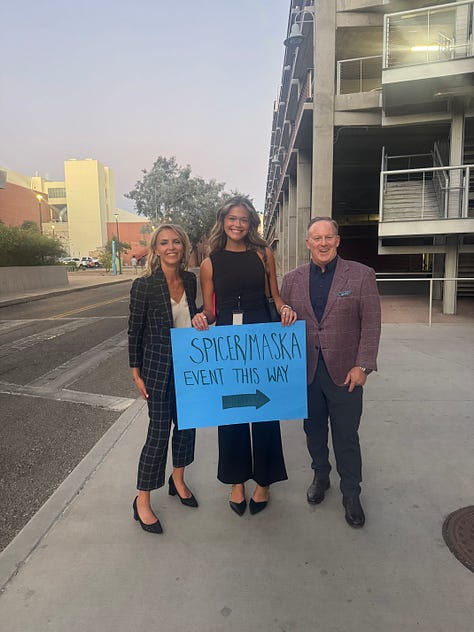
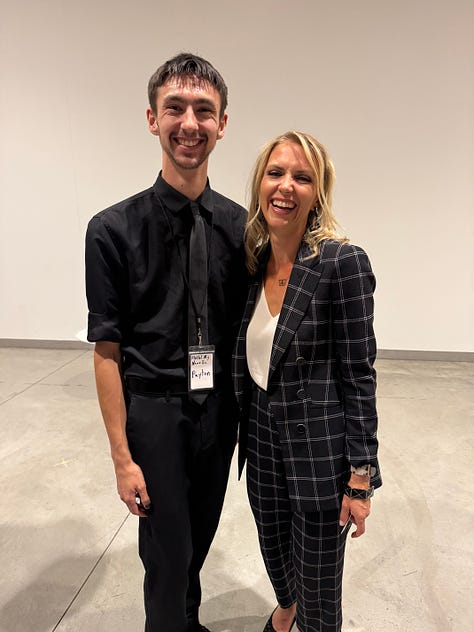
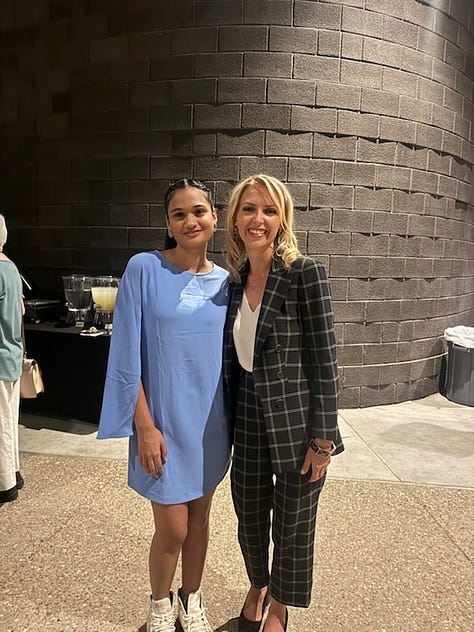
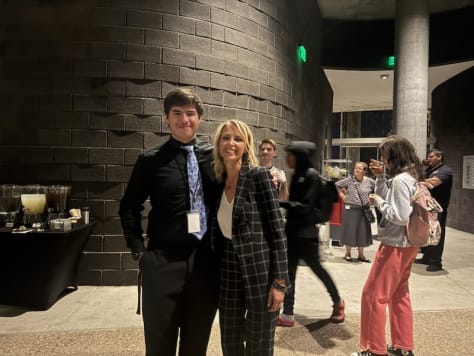
Both Sean and I have spent a fair amount of time on network television. The goal for too many in that business is often the fight rather than the conversation.
I recall how so often people are cordial and then gear up for the cameras. It’s performative and unhealthy in my opinion.
Keith Allred, the moderator for our conversation, has spent a long time working to bridge divides and has studied ways we can depolarize our society.
“There’s interesting research from Stanford that shows one of the strongest ways to bring the temperature down is when people witness prominent figures from both sides engaging in a civil and respectful dialogue,” Keith said.
We tried just that at the University of Arizona. And I hope, regardless of who wins this election, we see more of it.


